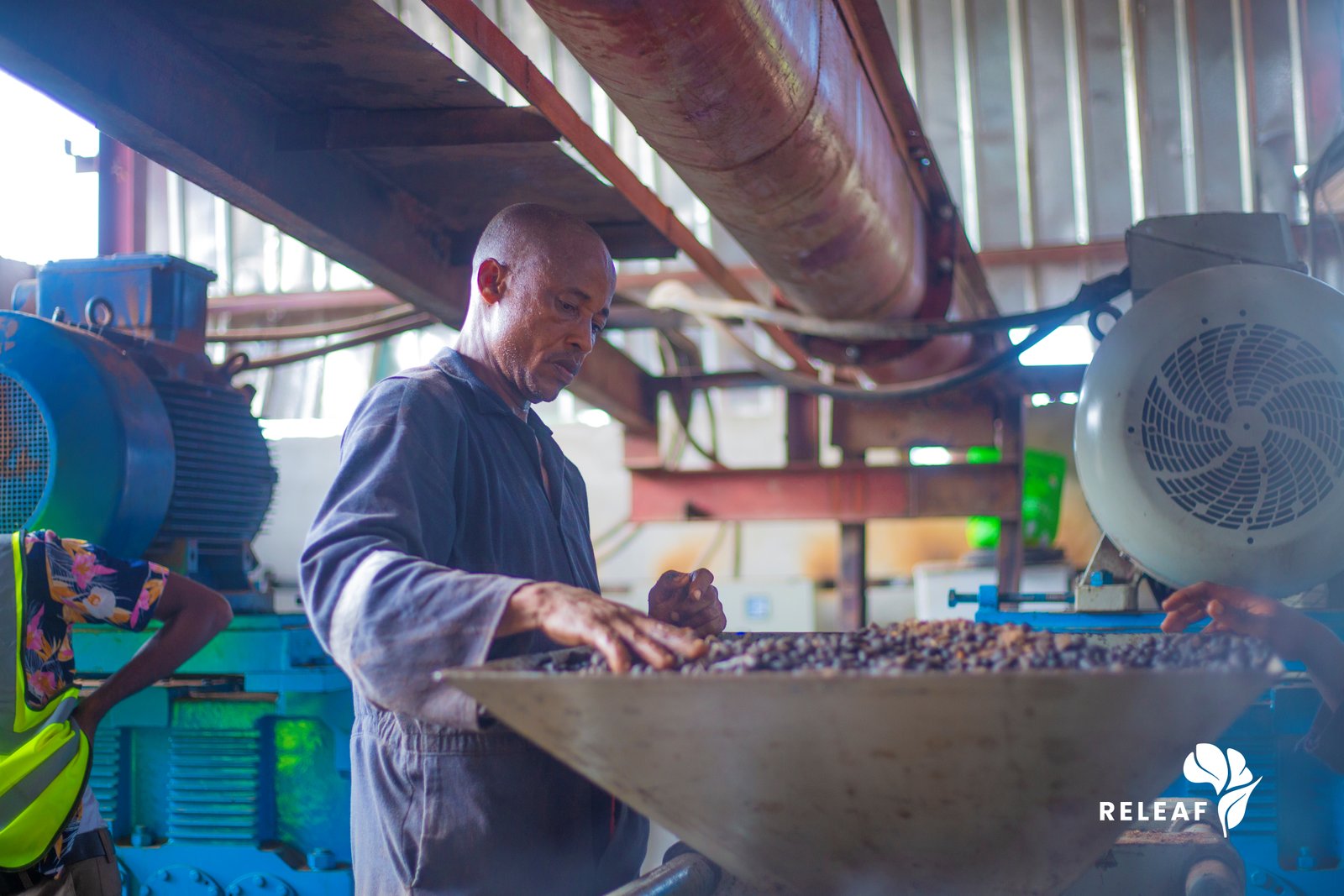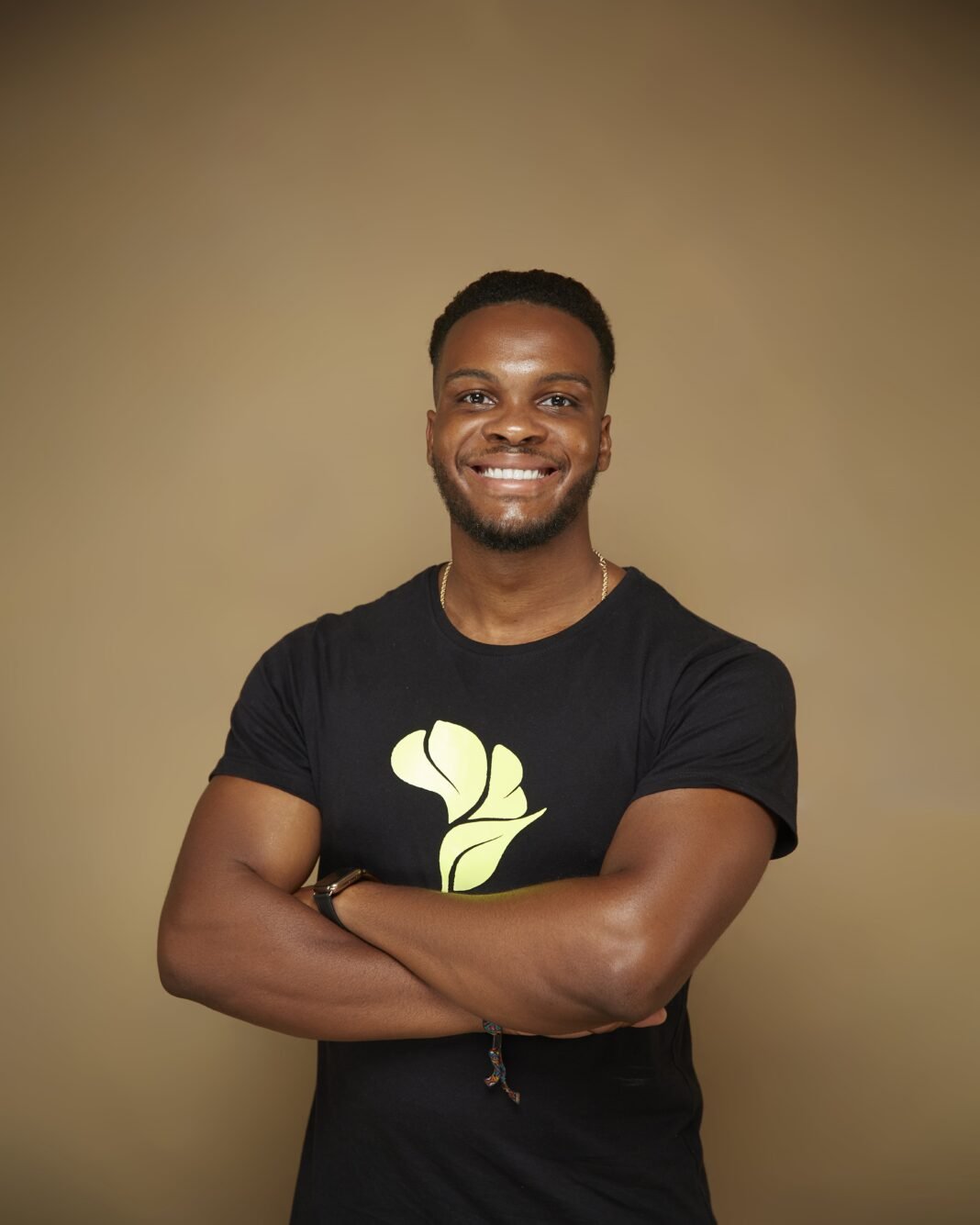 n times of chaos and crisis in Africa, taking people out of rural poverty to industrialisation becomes an unmet need. Releaf, a Nigerian startup is bridging the gap between the larger consumers and smallholder farmers.
n times of chaos and crisis in Africa, taking people out of rural poverty to industrialisation becomes an unmet need. Releaf, a Nigerian startup is bridging the gap between the larger consumers and smallholder farmers.
To understand more about this disruptive startup, Startup Africa had an amazing interview with Ikenna Nzewi, co-Founder and CEO of Releaf Marketplace Nigeria Limited
Q: Tell us more about yourself and Releaf
My name is Ikenna Nzewi and I am the CEO and co-founder of Releaf. I graduated from Yale University in 2017 with a degree in Computer Science. I am an avid researcher of economic development with a focus on tech-enabled industrialization.
While I was still at university, Uzoma Ayogu and I co-founded Releaf, powered by a passion to drive positive change in Africa’s agriculture sector.
Releaf is an Ag-tech company that develops proprietary hardware and software solutions to drive the industrialisation of food processing in Africa, starting with Nigeria’s $3 billion vegetable oil market. We act as a bridge between large consumer brands and smallholder farmers to ensure a consistent supply of high-quality input for the consumer brand’s factories. Our mission is to create a decentralised primary food processing industry across Africa that will improve circumstances for farmers, factories, and consumers.
Q: How did you get to know about Jack Ma Foundation’s Africa’s Business Heroes (ABH) prize competition, and what did you do differently to be selected among the Top 10 outstanding African entrepreneurs this year?
Africa’s Business Heroes was recommended by a friend and mentor, Soga Oni (ABH 2020 Top 3 finalist). Soga spoke highly of the ABH program and how the ABH team made the competition enjoyable, as well as the exposure and networking opportunities that came with participating in the program.
I have been up against some exciting entrepreneurs and innovators throughout the process, but I believe our mission and model sets us apart. A lot of the credit also has to go to our wonderful team because of the role they play in bringing the vision to life.
Q: What lessons have you learned from the ABH program?
There have been a few lessons on this journey with Africa’s Business Heroes. From the training on public speaking to the networking sessions that have facilitated better relationships with the ABH community, the experience as a whole has been an enriching one. Even the process of recording the video for the finale was a learning experience. There have been so many learnings that I hope to incorporate into how we run Releaf.
The ABH competition has challenged me in many ways and encouraged me to look at how we can improve what we do. We operate at a very high standard at Releaf but getting external advice on how we can do better and improve our organisation is always very useful.
ABH has also reminded us of the importance of having a strong business narrative and telling our story to inspire others. Our mission is to drive the industrialization of food processing in Africa as a route to long lasting, broad-based shared prosperity and this mission requires a lot of people. With an effective narrative and strong storytelling, we can inspire more people to see the potential of industrialization in Africa and join us on this mission.
Q: The ABH initiative is ongoing for another 7 years, who is eligible to apply and what tips can other startups take note of to enable them to participate next year and in the other upcoming editions?
Entrepreneurs of all ages, genders and industries can apply for Africa’s Business Heroes. My advice is to put your best foot forward and enter with the intention of going all the way. Make sure you take your time to effectively represent who you are, what you do and give yourself the best chance of winning.
Q: How do you plan to use your share of the money you will be getting in November this year from the ABH?
We will use the grant to kick off the process of setting up an additional factory. Our mission is to create a network of decentralized, tech-enabled food factories near farming hotspots across Africa and we aim to underpin every decision in this process with technology and data. We will conduct a GIS mapping exercise that will use machine learning data to enable an accurate view of oil palm hotspots so that we can make the most informed decision without relying on any guesswork. This process will demonstrate that a network of food processing factories is a novel and necessary model to unlock Africa’s unique agricultural potential.
 Q: What problem is your business solving in Africa, in Nigeria, or your community?
Q: What problem is your business solving in Africa, in Nigeria, or your community?
The demand for oil palm in Nigeria is two times higher than local production and we believe there is an opportunity to bridge this production gap by developing technology solutions that will make the oil palm value chain more efficient.
Nigeria has a long and rich history in oil palm production; we used to be the largest producer in the 1960s, with almost half of global production. Today, our contribution to oil palm production stands at less than 2 percent. The hard work and commitment of our farmers is never in doubt, but the absence of effective tools means many farmers spend their time doing backbreaking work for little return.
For example, in the oil palm sector, many farmers still use hand-held rocks to de-shell palm nuts by hand. This drudgerous process wastes a lot of their time and means they are less likely to produce factory-grade nuts — and their nuts are either sold cheaply or go to waste.
On the flip side, food factories typically have three times more installed capacity than utilization due to scarcity of quality raw materials and the capital to purchase them. This combination of issues is just a glimpse of the challenges facing our food production industry. It also points to how we can make the progress we need.
Q: Do you think this is the right time for your startup to solve the problem?
The COVID-19 pandemic had a significant impact on the agricultural sector, driving inflation in food prices, which makes life more difficult for consumers. As such, there is an increased need for companies like Releaf to drive industrial productivity in the sector and counteract the unsustainable prices. The average Nigerian currently spends ~60% of their income on food, compared with Americans who spend 10%. This is a situation that has been made worse by the pandemic and it is one that we need to fix in order to unlock consumer spending and build a more robust economy. Companies like Releaf are critical for improving farmer resilience during this difficult time and making food more affordable for consumers.
Q: Does your solution fit in the market? (Do people want it)?
We only started operations in oil palm in 2019 and just deployed our proprietary technology in January 2021 but we have already built relationships with more than 2,000 smallholder farmers to ensure a consistent, large-scale supply of palm nuts. We have also built strong relationships with some of the biggest consumer goods manufacturers in the country who have long-term purchasing agreements with us. We have already grown revenue by 1,000% from our first month’s traction.
You might not see that we have 100,000 farmers that we’re working within the first year, but you will see that many of our farmers are tripling, quadrupling, or 5xing their income, and that’s where our focus is. We’re focusing on rural industrialisation, and we understand that this is a long-term mission, but we are excited by the opportunity to drive growth and prosperity across the continent.
Q: Tell us more about your team, why are you the best to solve this problem?
We have a team of over 90 people that are mainly based in our Uyo and Calabar sites. We have been able to recruit people with the competencies we need and relevant experience in the oil palm sector, and this has put us in a strong position to deliver our vision.
I have a Computer Science background and I spent a lot of my childhood working on engineering projects with my dad who has a Ph.D. in Civil Engineering, so building hardware and software fits within my skill set. My co-founder Uzoma also has a Mechanical Engineering background and used to work for GE Aviation. This combined experience, along with the experience of our wider team, puts us in a strong position to deliver the solutions we need and achieve the success we want.
Q: How innovative is your startup? (technological/social innovation).
We have developed West Africa’s most advanced palm nut de-sheller. After intense research and development, our proprietary patent-pending hardware, Kraken, came online in January 2021 and can process 500 tonnes of palm nuts of any variety of palm nut per week to produce premium palm kernel products at 95% purity, better than the 88% industry standard.
Kraken costs less than half of the cost of an imported de-sheller. It operates 25x faster than local cracking equipment crackers and 200X faster than de-shelling by hand.
Q: What is the social impact of your startup and what makes you different in the market?
Our mission is to drive the industrialization of food processing in Africa. Industrialization has moved more people out of poverty in the shortest period than any other phenomenon in the history of the world. From the United States and Great Britain to China and South Korea, industrialization has provided the most direct route to long-lasting and broad-based shared prosperity across the world, and it is certainly something we can benefit from in Africa as well.
In the 21st century, there is no reason why farmers should rely on hand-held rocks to process food. Our burgeoning technology sector has shown that Africa is capable of developing effective solutions to its own problems. We have seen a wide range of innovations from fintech and eCommerce to healthcare and of course, agriculture. This new wave of innovation can be channeled towards developing technology that will consolidate our food systems and position farmers for long-term prosperity.
Q: How are you scaling up the startup and how do you measure your success?
We are currently operating in Nigeria’s oil palm market, but we certainly plan to expand across West Africa in oil palm and into additional crops for a continental footprint in due course, building a network of decentralised factories that will power the industrialisation of food processing
Q: What advice do you have for budding entrepreneurs and new startups in Nigeria?
I’d like to encourage more entrepreneurs to make sure they spend time on-ground understanding the current realities before getting involved in any sector. There is no substitute for investing time and effort into knowing what is really going on in any market before you dive in. I’d also warn ex-pats like myself to avoid blind technology transfer from the West when solutions that may work elsewhere don’t match our realities here.
We have seen a boom in technology innovation in recent years, but I think there is an equally substantial opportunity with industrialisation. With more industrialization in Nigeria and across the continent, there is the potential to create jobs for the millions of people that will be added to our population over the coming years and address many of the other challenges that currently face the continent.
Contact details:




































